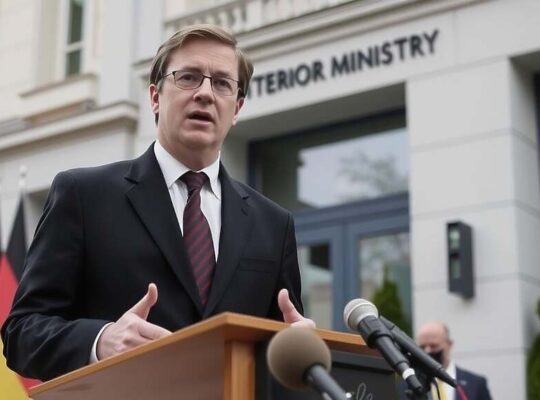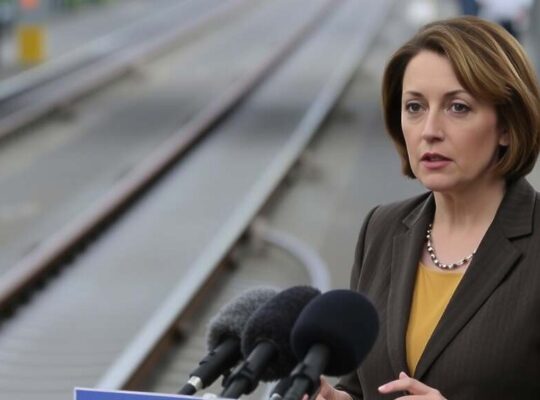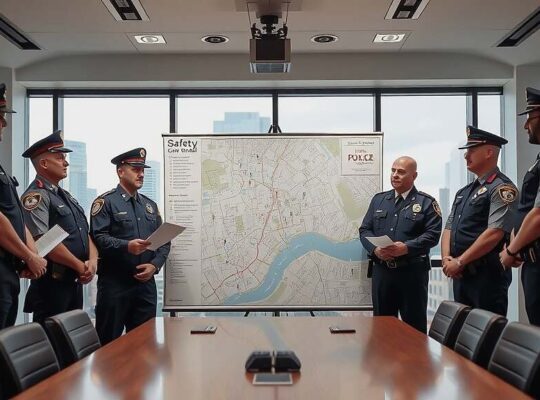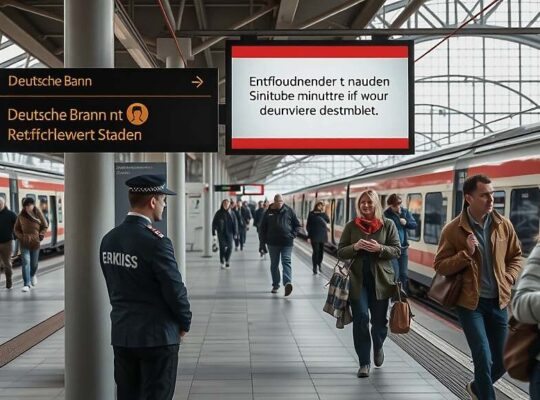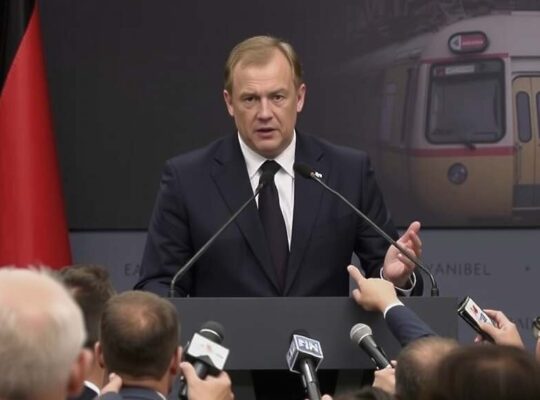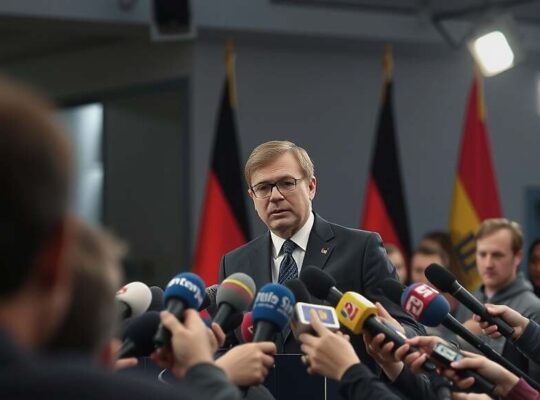The debate over security and resource allocation within Germany’s federal police force has intensified, with leading voices from the Social Democratic Party (SPD) and the Green Party calling for a significant redeployment of personnel away from border controls and toward bolstering security at railway stations. The proposals stem from a growing consensus that existing border control measures are excessively manpower-intensive and fail to demonstrably improve security, while leaving stations vulnerable.
Sebastian Fiedler, SPD’s interior policy spokesperson, argued that diverting approximately 4,000 federal police officers presently engaged in border checks could dramatically increase security presence at train stations. He suggested that “smart border control” technologies, relying heavily on surveillance and data-driven analysis, could replace the current personnel-heavy approach, effectively addressing border security while freeing up officers for station duty. His call was echoed by Marcel Emmerich, Green Party spokesperson, who described existing border controls as “unlawful and disproportionate” diverting crucial resources from areas of greater immediate need.
The proposal gained significant traction following remarks by Andreas Roßkopf, head of the Police Union (GdP), who stated that 3,000 to 4,000 federal police officers are currently lacking at railway stations. The Union also advocates for a “suspicion-independent” right to conduct searches, a point underscored by the growing need for enhanced security measures.
However, the proposal has met with staunch resistance from the conservative Union faction (CDU), with interior policy spokesperson Alexander Throm rejecting the idea of staff cuts for border controls. He argued that the police are “well-staffed” and emphasized the importance of reducing the influx of irregular migration. Throm also highlighted the government’s move to reform the federal police law after three decades – ostensibly designed to provide expanded, modern powers, including enhanced search capabilities within “weapons ban zones” at train stations.
The debate has also brought into focus the contentious issue of expanded police powers. Markus Matzerath, AfD’s interior policy representative, expressed caution regarding the “expansion of the surveillance state” but conceded that temporarily expanding the federal police’s authority, specifically allowing suspicion-independent searches, might be “justified” given what he views as the negative consequences of current migration policies.
Clara Bünger, Left Party’s interior policy spokesperson, challenged the very concept of suspicion-independent searches, arguing that such practices already exist within the draft federal police law and effectively undermine the presumption of innocence. She warned such powers risk leading to “arbitrary measures and racial profiling” violating the fundamental constitutional principle of non-discrimination.
Acknowledging the challenging recruitment situation within the police force, Heiko Teggatz, Vice-Federal Chairman of the German Police Trade Union (DPolG), welcomed the SPD and Green’s stance, despite historic disagreements with the GdP on the issue of expanded powers. He emphasized that uniformed presence would undoubtedly improve public safety and suggested focusing on modern video technology – particularly “anonymized behavior detection” using AI – as a substitute for personnel shortages.
The intensifying debate signals a pivotal moment in the German government’s approach to law enforcement, raising fundamental questions about resource allocation, civil liberties and the balance between security and the rule of law.




